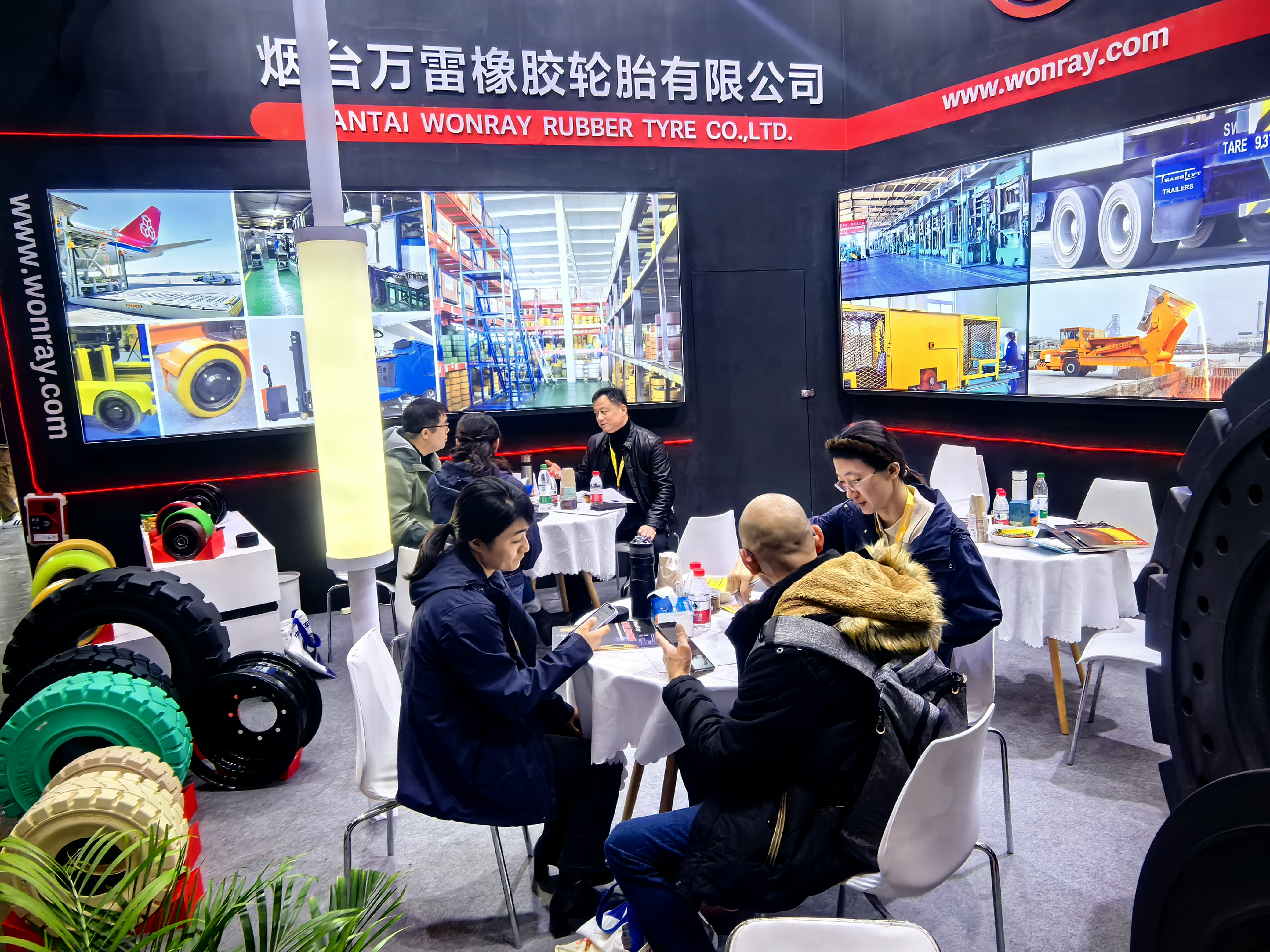In a world where every minute of downtime costs money, the reliability of your equipment is paramount. While flashy machinery often gets the spotlight, the true workhorses are the components that keep everything moving smoothly. Among them, the solid rubber wheel stands out as a critical, yet often overlooked, part of countless industrial and commercial applications.
Unlike their pneumatic counterparts, solid rubber wheels are designed for pure performance and dependability. They are the go-to solution for businesses that demand uninterrupted operation, superior load-bearing capacity, and a complete absence of the maintenance issues associated with air-filled tires. For B2B buyers, choosing the right wheel isn’t just about a part; it’s about investing in the efficiency and safety of their entire operation.
Why Solid Rubber Wheels are the Smart Choice for Your Business
Investing in solid rubber wheels brings a host of benefits that directly impact your bottom line.
- Puncture-Proof Durability: The most significant advantage is their immunity to flats. This eliminates costly downtime caused by punctures from nails, glass, or debris, ensuring your equipment stays operational and productive.
- Zero Maintenance: Solid wheels require no air pressure checks, inflation, or patches. This translates to lower labor costs, less time spent on maintenance, and a simpler inventory for replacement parts.
- Superior Load Capacity: Constructed from dense rubber, these wheels can handle substantially heavier loads than pneumatic tires of the same size. Their robust design prevents them from compressing or deforming under heavy weight, providing better stability.
- Enhanced Safety: A flat tire on a loaded cart or forklift can be a major safety hazard. Solid wheels provide consistent stability and a predictable ride, minimizing the risk of accidents caused by sudden pressure loss.
- Long-Term Cost-Effectiveness: While the initial cost may sometimes be higher than that of a pneumatic wheel, the long-term savings are significant. Reduced downtime, lower maintenance costs, and a longer service life make them a more economical choice over time.
Applications and Industries that Rely on Solid Rubber Wheels
The reliability and strength of solid rubber wheels make them indispensable in a variety of sectors:
- Material Handling: Used on forklifts, pallet jacks, hand trucks, and trolleys, where they are required to move heavy goods across warehouse floors without the risk of flats.
- Waste Management: Essential for waste bins and dumpsters, where they must withstand constant abuse, sharp objects, and heavy loads on various surfaces.
- Construction and Scaffolding: Found on wheelbarrows, scaffolding casters, and mobile equipment, providing stability and puncture resistance on rugged and debris-strewn construction sites.
- Agriculture: Some farm equipment and carts utilize solid rubber wheels to navigate uneven terrain without the risk of a flat tire in the middle of a field.
- Aerospace and Manufacturing: Critical for ground support equipment and factory trolleys that transport expensive, sensitive components and require absolute reliability and a smooth ride.
Key Factors to Consider When Sourcing Solid Rubber Wheels
To find the right product for your needs, consider these important factors:
- Wheel Material Composition: Quality wheels are made from high-grade natural or synthetic rubber compounds that offer a good balance of durability, cushioning, and longevity.
- Load Rating: Always choose a wheel with a load capacity that exceeds your maximum required weight. This ensures a safety margin and extends the wheel’s service life.
- Hub and Bearing Type: The wheel’s hub and bearings must be compatible with your equipment’s axle size. Look for high-quality bearings (e.g., ball bearings) for smoother rolling and reduced friction.
- Tread Pattern: The tread pattern can affect grip and ride. Smooth treads are ideal for indoor, clean surfaces, while more aggressive patterns are better for outdoor or rougher environments.
Conclusion
The solid rubber wheel is a testament to the value of simplicity and strength in industrial design. By eliminating the risks and costs associated with air-filled tires, these wheels provide a reliable foundation for your business’s mobility. They are a crucial investment in safety, efficiency, and long-term profitability, ensuring that your equipment keeps moving and your operations remain productive, no matter the challenge.
FAQ
Q1: How are solid rubber wheels different from pneumatic wheels? A: The main difference is that solid wheels are made of a dense rubber compound and don’t contain air, making them puncture-proof and maintenance-free. Pneumatic wheels are filled with air and require regular pressure checks.
Q2: Do solid rubber wheels provide a smooth ride? A: While they may offer less cushioning than a properly inflated pneumatic tire, modern solid wheels are engineered to be highly elastic and absorb shocks. The ride quality depends on the material composition and wheel size.
Q3: Can solid rubber wheels be used on all surfaces? A: Yes, they are highly versatile. The appropriate wheel for a specific application depends on the tread pattern and material. They perform well on concrete, asphalt, and even some gravel surfaces, provided they have a robust design.
Q4: Are solid rubber wheels more expensive than pneumatic ones? A: The initial purchase price of a solid rubber wheel can be higher. However, the total cost of ownership is often lower due to savings from zero maintenance, no downtime from flats, and a significantly longer lifespan.
Post time: 02-09-2025

